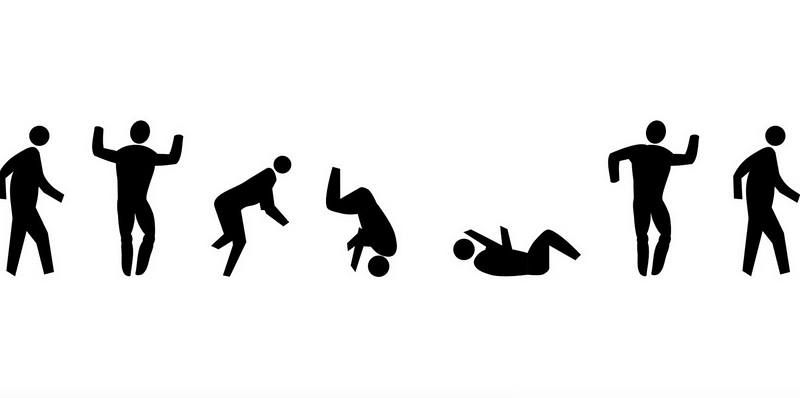
In the late 1800s, clergyman and scholar William Pollard said, “Learning and innovation go hand in hand. The arrogance of success is to think that what you did yesterday will be sufficient for tomorrow.” Pollard said this during the first industrial revolution, the period from about 1760 to 1840. The reason I highlight the period is that during that time factory work was atomised into small parts. Thinking and doing were decoupled, the worker was a mere automaton. Thinking was for the higher echelons. For Pollard to understand how success depends on a culture of learning was so far ahead of his time. This Thursday Thought explores why innovation and education are inextricable and some ingredients essential for organisations to adapt.
A VUCA Business Environment

“Humanity is going to need a substantially new way of thinking if it is to survive!” — Albert Einstein
VUCA is an acronym to describe or to reflect on the volatility, uncertainty, complexity and ambiguity of general conditions and situations. The U.S. Army War College introduced the concept of VUCA to describe the more volatile, uncertain, complex and ambiguous multilateral world perceived as resulting from the end of the Cold War. I think you might agree, we all live in a world strongly characterised by VUCA. For this Thursday Thought, let’s just focus on the business world.
Innovation consultancy Innosight (co-founded by Innovation Show guest Scott D. Anthony) produces the Corporate Longevity Forecast. In 2018, Innosight expect the average tenure of S&P 500 companies will continue to grow shorter and shorter over the next decade. Innosight hold that the 33-year average tenure of companies on the S&P 500 in 1964 narrowed to 24 years by 2016 and forecast it will shrink to just 12 years by 2027. This spells accelerated disruption and creative destruction in the business world in coming years. To solve complex business challenges, we must upgrade our thinking, something I will discuss on a future Thursday Thought and have touched on previously here.
The Environment for Change

It is said that a farmer does not “make crops grow” but creates the environment in which crops “can grow”. A farmer enriches the soil with the correct nutrients and ensures we create the correct conditions for optimal growth. The farmer also plants the correct crops at the correct times, harvests at the right time and ensures to leave the land fallow so they do not abuse it in the name of profits. In a similar vein, a great leader picks the correct crops (people, products and services), harvests at the right time (starts, stops, continues the products and services to meet the need of a customer) and leaves the land fallow (respects sustainability and the circular economy). The most important thing a leader can do is to create the right conditions. We cannot force innovation, innovation comes because we provide the right conditions. What are some ingredients of the right conditions? (I will only touch on some items because I want to focus on the foundational one).
To create new insights and new outputs, we need new knowledge, new inputs, new thinking, which enables us to create new and novel connections. To make those connections, we need both time and permission to do so. To speak up to share our ideas, we need courage. Courage is underpinned by the trust that colleagues nor superiors will neither ridicule nor shame us. The foundation of everything, however, is a phenomenon known as “Psychological Safety”.
I had the great pleasure to welcome the “Mother of Psychological Safety”, Amy Edmondson as a guest on Innovation Show 189. Amy defined psychological safety as “The belief that the workplace is safe for safe for interpersonal risks, like asking questions, offering a half-baked idea, admitting a mistake and so forth. Psychological safety is a belief that asking questions, speaking up with ideas, admitting mistakes will not be punished, but will be valued by my colleagues. I do it in the book “The Fearless organization”. I try very hard to make the point that the psychological safety construct is more important than ever. I stumbled into it more than 20 years ago and I thought it was important then because I thought learning was important. I thought the ability to continuously learn at work was mission critical to success. Fast forward to today and it’s that much more important and and not just learning, but but detection of risks and signals of harm or signals of opportunity. In a VUCA environment, if we don’t have everybody employed as sensors, everybody is present to be alert to what’s really going on then we’re in trouble.”
What Failing Fast Actually Means

“Failure is an option here. If things are not failing, you are not innovating enough.” — Elon Musk
Fail fast is a meme associated with innovation and disruption, but we often misunderstand what “fail fast” truly means. When a risk-averse or fearful leader hears “fail fast”, they often hear “waste fast”, “lose revenue” or “reduce shareholder return”. In terms of disruption and innovation, “fail fast” means to experiment as quickly as possible with minimal investment, learn from that experiment. Did it work, Yes? Continue. No? Why? Learn from it. Pivot. Repeat until succeed, abandon or find another way. Notice the loop, the loop includes trial and learn from trial, innovation is an output of this loop. Innovation is enabled by creating the correct environment for this loop to live and breathe.
As humans, we are natural problem solvers, we learn more from our mistakes than we do from our successes. However, as we grow older, we become aware of how others perceive us and judge us. Because we do not learn how to learn, we become afraid to try for fear of shame and judgement. This poem sums up how small incidents accumulate to form our future view of mistakes:

“Her small, anxious hands
grabbed the cup, a bit too large
as it slipped down and tumbled to the ground, the milky mess covering the carpet: her mother let out a disapproving sigh and rolled her eyes,
“Will you ever do anything right?” And that’s when she began to limit her aspirations,
so that her dreams would never be too large, so she’d never make any mistakes she’d never again drop the cup, but she’d never have enough to drink.” — https://www.deviantart.com/tangled-tales
Friend of the Innovation show and two-time guest Whitney Johnson tells us,
“It’s shame that limits disruption, not failure. We aren’t afraid of making a mistake; we are afraid of how will feel about ourselves, that somehow we will be worth less.” — Whitney Johnson
Whitney articulates the problem beautifully. If fear of shame, failure and repercussions are the poison, psychological safety in the workplace is the antidote.
If we drill psychological safety into the mind of future leaders as they learn in school, they will enter the workforce with the clear understanding that that learning and innovation are bedfellows and psychological safety is the mattress. For innovation to “happen” leaders, teachers and mentors must prepare the bed. Failure is part of learning, learning is part of failure, and both are part of innovation, especially in a VUCA world.
Episode 189 is “The Fearless Organization: Creating Psychological Safety in the Workplace for Learning, Innovation, and Growth” with Amy C. Edmondson
This episode offers practical guidance for teams and organisations who are serious about success in the modern economy.
With so much riding on innovation, creativity, and spark, it is essential to attract and retain quality talent — but what good does this talent do if no one is able to speak their mind?
The traditional culture of “fitting in” and “going along” spells doom in the knowledge economy.
Success requires a continuous influx of new ideas, new challenges, and critical thought, and the interpersonal climate must not suppress, silence, ridicule or intimidate.
Not every idea is good, and yes there are stupid questions, and yes dissent can slow things down, but talking through these things is an essential part of the creative process.
People must be allowed to voice half-finished thoughts, ask questions from left field, and brainstorm out loud; it creates a culture in which a minor flub or momentary lapse is no big deal, and where actual mistakes are owned and corrected, and where the next left-field idea could be the next big thing.
Today we explore a culture of psychological safety, and provide a blueprint for bringing it to life. We explore the link between psychological safety and high performance Create a culture where it’s “safe” to express ideas, ask questions, and admit mistakes Nurture the level of engagement and candour required in today’s knowledge economy
How can we fertilise creativity, clarify goals, achieve accountability, redefine leadership, and much more.
Psychological safety helps bring about this most critical transformation.
Have a listen:
Soundcloud https://lnkd.in/gBbTTuF
Spotify http://spoti.fi/2rXnAF4
iTunes https://apple.co/2gFvFbO
Tunein http://bit.ly/2rRwDad
iHeart http://bit.ly/2E4fhfl
More about Amy here: https://www.hbs.edu/faculty/Pages/profile.aspx?facId=6451